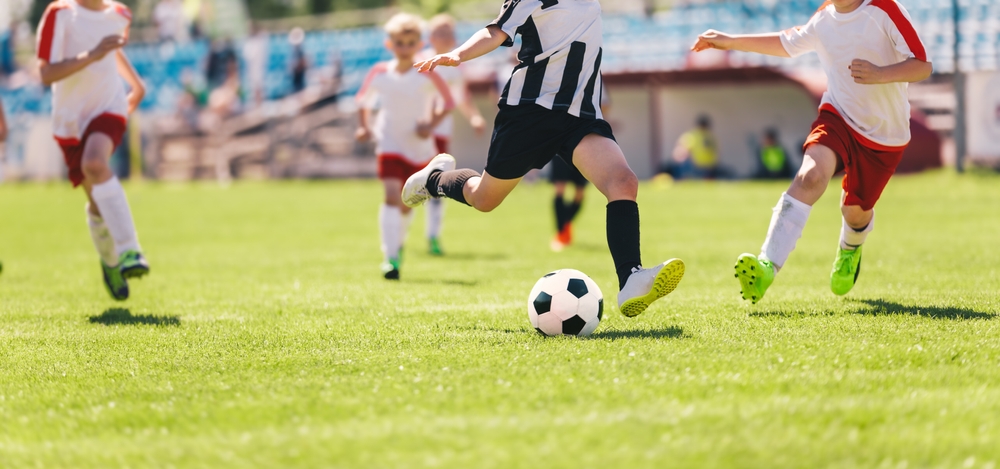Participating in sports can provide children with a wide range of benefits that can positively impact their physical, social, and mental well-being. It can help children develop important physical skills, such as coordination, balance, and endurance, while also promoting healthy living and reducing the risk of obesity and related health problems. Future related career skills such as working as a team, communication and leadership are all key areas that can be developed through participating in sporting activities.
Appropriate sports for different age groups
The appropriate age for children to play specific sports can vary based on several factors, including the child’s physical development, cognitive abilities, and interest level. Children can start a wide range of sports at the age of 5 with most children joining recreational leagues around age 6.
Today, most schools offer traditional and new school sports and some of the most common sports played by kids fall under the categories below.
For children in Preschool Years (ages 3-5), an introduction to sports can be beneficial in several ways. Firstly, sports can help children develop their gross motor skills, including coordination, balance, and agility, as they learn to run, jump, kick, and catch. This can be important for their overall physical development and can help them build a foundation for an active and healthy lifestyle.
Learning football can be a fun and engaging way for preschoolers to develop their cognitive skills, such as problem-solving, decision-making, and spatial awareness. As they learn to navigate the field, anticipate movements, and adjust their strategy, they can develop important cognitive abilities that will serve them well in other areas of their lives.
Gymnastics on the other hand, can also help preschoolers develop important motor skills, such as balance, coordination, and flexibility. Through various activities like tumbling, jumping, and climbing, they can improve their body awareness and control, which will be beneficial for them in the long run.
Swimming and dance are also other sports that are good to develop important motor skills, such as coordination, balance, and strength. Swimming can help children improve their flexibility and range of motion and it is vital for children, to learn this important safety and life skill.

Age-by-Age Guide to selecting sports for your child
As children grow up, their physical, cognitive, and social skills continue to develop, and their interests and abilities may change. Here are some examples of sports that may be appropriate for different age groups:
- Ages 5-8: At this age, children are still developing their basic motor skills and may enjoy sports that emphasize movement and coordination, such as soccer, basketball, gymnastics, and swimming. They may also enjoy activities that involve imagination and creativity, such as dance or martial arts.
- Ages 9-12: As children enter the pre-teen years, they may be more interested in competitive sports and teamwork. Sports such as soccer, basketball, volleyball, baseball, softball, and hockey may be good options. They may also enjoy individual sports such as tennis, golf, or track and field.
- Ages 13-18: In their teenage years, children may become more serious about sports and may have the opportunity to participate in school or community teams. Sports such as football, basketball, volleyball, soccer, baseball, softball, and track and field may be popular options. They may also enjoy individual sports such as swimming, diving, gymnastics, or martial arts. Additionally, many children enjoy participating in non-traditional sports, such as martial arts, dance, fencing, or skateboarding, which can also provide physical activity and developmental benefits.
It’s important to note that while certain sports may be more appropriate for certain age groups, every child is unique and may have different interests and abilities. It’s vital to encourage children to participate in activities that they enjoy and that are appropriate for their individual skill level. Additionally, prioritising safety is key to ensuring children are properly trained and supervised when participating in sports.
A study published in The Sport Journal found that children who engage in physical activity have better self-esteem and confidence.
Furthermore, the skills and habits developed through sports can benefit children throughout their lives, helping them to maintain healthy lifestyles and positive social relationships, while also developing important character traits such as discipline, determination, and resilience. Overall, sports can play an important role in promoting the physical, social, and mental well-being of children, and can have long-lasting benefits that extend into adulthood.








